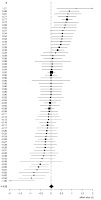 The story was straight forward, vanilla but never unbearably dull. Exactly as advertised on the tin; the trailer can be taken as complete crib notes. The special reserve was Sharlto Copley's maniacal "Kruger", also the only enjoyable character, demanding stage presence.
The story was straight forward, vanilla but never unbearably dull. Exactly as advertised on the tin; the trailer can be taken as complete crib notes. The special reserve was Sharlto Copley's maniacal "Kruger", also the only enjoyable character, demanding stage presence.It felt horribly under-ambitious, especially compared to the inspired District 9. I think Neil Blomkamp was aiming for the kind of perfectly well rounded movie that translates very well into international sales. Blomkamp openly admits that this film was supposed to be his great big Hollywood blockbuster, like he's collecting a set. I guess that's a little like Stross's tendency toward a different pastiche for each book, particularly in styling his Laundry novel's. In the process Blomkamp has shaved so many edges smooth that the kernel of all his ideas barely remained...
- There were zero laughs, perhaps occasional snorts of acknowledgement. The most amusing part, for me, was that the Elysium leadership seemed to be named after Harry Potter characters: (Fleur) Delacourt, (Padma and Parvati) Patil/Patel.
- It was not nearly as bloody/gory/ugly as expected; virtually sterile, even for a 15 certificate, certainly compared to some of the gut wrenching, watching-between-fingers, type scenes in which Copley previously stared. I guess I just take exploding people for granted...
- No full-on action-gasm; no pig gun equivalent. There was a bit of an OooOOoh, here we go! moment in the middle, during the (abduction) action sequence, but it felt like a bit of an aborted fumble in comparison.
- Totally non-sexual, unless you count the CGI porn of the perfectly manicured orbital habitat. Which is fine; interesting purely for *not* ticking that box. The romantic connection was underplayed too, though. Perhaps it was just a little too unsubtle. That does fit with the earthy, realistic aesthetic though; not at all the quick fling, fantasy Hollywood romance.
- The film does do pretty well (for an American blockbuster) at including an international flavour, with a Brazilian love interest, strong hispanic (Mexican) presence, and French, South African (and British?) villains. Bechdel test was "squarely fail[ed]", however, but then it wasn't exactly a very talky movie.
- Emotionally un-engaging, with no real personal journey for Max, played by Matt Damon, who I've decided I like, but here he felt like a laminated cardboard cut-out.
 |
| Orbital Speed? |
The Elysium space habitat seems to exist in a total vacuum, in more than the literal sense; the setting is starkly prosaic, with a straight up, straight down world. Deliberately so, I think, going for symbolism. 'Elysium' (the Greek/Roman afterlife for the relatives and friends of gods and the most virtuous) perched there above the clouds, so those below (in Hades) can look up at it's glowing halo, as one might do in prayer today. Witness, too, the religious orphanage the protagonist grows up in, etc.
 My point is also that the film very carefully avoids mention of anywhere else on earth besides the LA sprawl, which seems more a quaint, contemporary, shanty-town in comparison to the Neuromancer (1984) style sprawl (seen breifly in the opening exposition: right).
My point is also that the film very carefully avoids mention of anywhere else on earth besides the LA sprawl, which seems more a quaint, contemporary, shanty-town in comparison to the Neuromancer (1984) style sprawl (seen breifly in the opening exposition: right).


